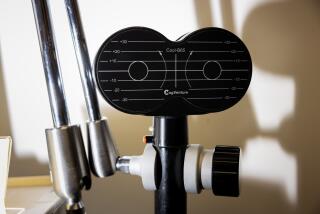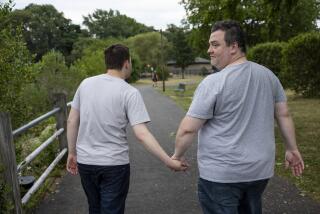Widely used antioxidant supplement curtails some autism symptoms
- Share via
A widely used antioxidant supplement can reduce some of the symptoms of autism in children, a pilot study has found. The supplement -- N-acetylcysteine, or NAC -- lowered irritability in the children and reduced repetitive behaviors, researchers from the Stanford University School of Medicine reported in the journal Biological Psychiatry. The team cautioned, however, that only 31 children were enrolled and that larger studies are needed to confirm the potential benefit.
Currently, irritability, mood swings and depression in autistic children are treated with antipsychotic drugs. But these drugs can have significant side effects, including weight gain, involuntary motor movements and metabolic syndrome, which increase the risk of developing diabetes. NAC, in contrast, has much milder side effects, such as constipation, diarrhea, nausea and decreased appetite.
A team headed by Dr. Antonio Y. Hardan of Stanford examined NAC in 31 autistic children, ages 3 to 12. Half the children received a placebo and half received NAC: 900 milligrams daily for four weeks, 900 mg. twice daily for the second four weeks, and then 900 mg. three times daily for the final four weeks. By the end of the trial, the children’s scores and a widely used irritability scale had declined from 13.1 to 7.2. The drop was not as large as that produced by antipsychotics, Harden noted, but the drug could be useful because it has fewer side effects. The children also showed a decline in standardized measures of repetitive and stereotyped behaviors.
Hardan noted that the team used a pharmaceutical-grade NAC packed in individual doses by manufacturer BioAdvantex Pharma. Over-the-counter supplements begin to degrade rapidly when the bottle is opened and they are exposed to sunlight and oxygen, he noted. Stanford has applied for a patent on the use of NAC to treat autism, and one of the researchers has a financial stake in BioAdvantex, which supplied the drugs for the trial.
LATimesScience@gmail.com
Twitter/@LATMaugh






